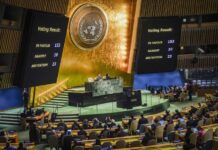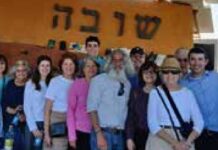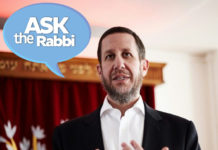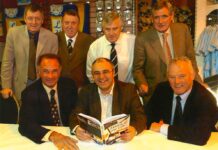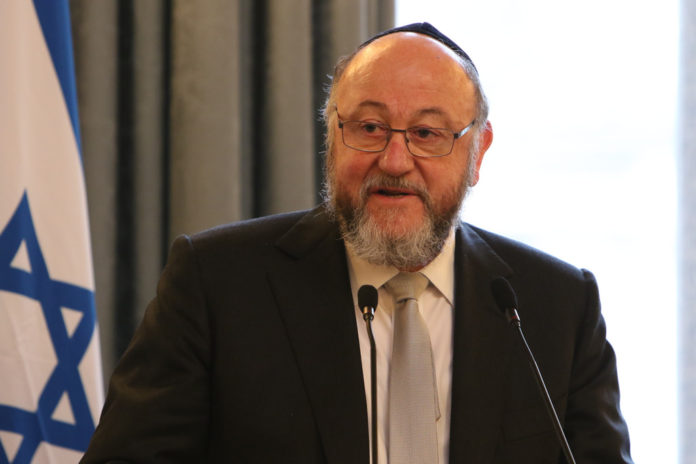
Jeremy Corbyn’s Labour Party have yet to take anti-Semitism seriously Chief Rabbi Ephraim Mirvis told BBC Five Live listeners this week.
During a frank, illuminating interview on The Emma Barnett Show on Monday, he also warned that tensions still existed between the Jewish community and opposition party.
Anti-Semitism was in many areas of UK life but “right at the front” of Jewish community minds were activities in the Labour Party.
“It doesn’t appear the Labour Party is taking antisemitism seriously enough,” he warned.
“There’s a great backlog of cases that haven’t been dealt with, it took some time and effort for the IHRA definition of anti-Semitism to be passed. We haven’t yet seen it being properly implemented so we continue to be very concerned in that regard.”
He added: “The longer we wait, the more concerned we get. We’re waiting to see anti-Semitism being taken seriously. All we are asking for, all that our society is asking for, is zero tolerance on anti-Semitism, and that’s what we expect to see.”
Asked whether there was engagement between communities and Labour Party, the Chief Rabbi confirmed there were tensions which was nothing new.
“We have continued to stress an end of talking and a beginning of action,” he explained. “They’ve said some pretty impressive things but we need to see the results.”
An intriguing interview recalled Sunday’s extraordinary ceremony for six victims of the Holocaust at United Synagogue’s New Cemetery in Bushey.
Looking back at the service attended by over 1,200 people, he described the response as “extraordinary”.
“It was an enormous privilege to officiate at this funeral but also a great responsibility,” he explained.
“These people were stripped of all their dignity in life and in death, and we wanted to give them a dignified funeral. And it was our responsibility to transit a message that is poignant and timely arising out of this extraordinary event.”
Chief Rabbi Mirvis told Ms Barnett that nothing could prepare him for this particular funeral.
“I’ve officiated at funerals of Holocaust survivors, but did I ever think that I’d officiate at an event for holocaust victims, absolutely not,” he said.
“It was emotional but there was a very special aura about the place and I’m very pleased everyone treated the event with such enormous dignity and respect.”
He added that there was a lot of sadness but also closure for many present, as the six victims, five adults and a child, symbolically matched five million adults and a million children murdered in Shoah.
“Because there were millions not buried and families not knowing what happened to them, there were dozens of people definitely thinking this was the funeral of a mother, father, grandmother, grandfather brother or sister,” he explained. “The response to me after the funeral, they could not verbalise their appreciation for what had transpired. And I think everybody had felt that same way.”
The Chief Rabbi agreed, when asked, that the grave site would resonate alongside the Tomb of the Unknown Solider with people.
“This will be a place of pilgrimage” he said.
“We will be creating a garden of remembrance surrounding this particular grave, I have no doubt it will be visited by many thousands of people and it will provide a channel through which they will express their emotion and also offer some prayers”.
Asked whether extra security might be needed in case of desecration, he noted,
“I would hate to think in those terms, it would take a very warped mind to think in those terms, but we are living in a world where unfortunately there is an increase in anti-Semitism, we do need to be cautious.”
Expanding on levels of hate crime, he added, “It is tragic that so soon after the Holocaust we have seen an increase in anti-Semitism, racism and xenophobia.
“There is so much hate speech around, which can easily be translated into hate crimes”.
Chief Rabbi Mirvis added, “When anti-Semitism goes unchecked there are some people who can do anything.
“There are some people who can stoop down to the lowest ebb of human endeavour and action. And that is why it is so hugely important for us to confront anti-Semitism in all its forms today.”
Asked about Conservative MP Anna Soubry being repeatedly called a Nazi during an interview outside Parliament, the Chief Rabbi was stunned it was allowed to happen and continue.
“I watched that video many times, and was saddened and troubled by it,” he explained.
“Those people saying that don’t know what Nazism is all about, and if they have said it knowing it, that makes it all the worse. This is just an indication of some of the discourse that is taking place today and we cannot allow it to get out of control.”
Chief Rabbi Mirvis confirmed that he had received hate messages on his own Twitter account.
“Today society is on a fast track from thought to publication, you think things and then in a few moments globally it can be read. And these words are having an enormous impact on people,”
“If only people would think better before actually sending messages out.
“There is so much hate being expressed, we need to counteract that with love, appreciation and cherishing people with reaching out to others, engaging in compassion to more people and appreciating the divinity of G-d within every soul.”
He added, “There are some very upsetting levels of hatred out there and we have to take them seriously.
“We can’t just say, oh this is what some people are just saying because its hate speech, particularly when said by people in prominent positions, it sets the tone for our society and legitimises not just the hate speech, but the hate crimes that follow.”
By Louis Abrahams



